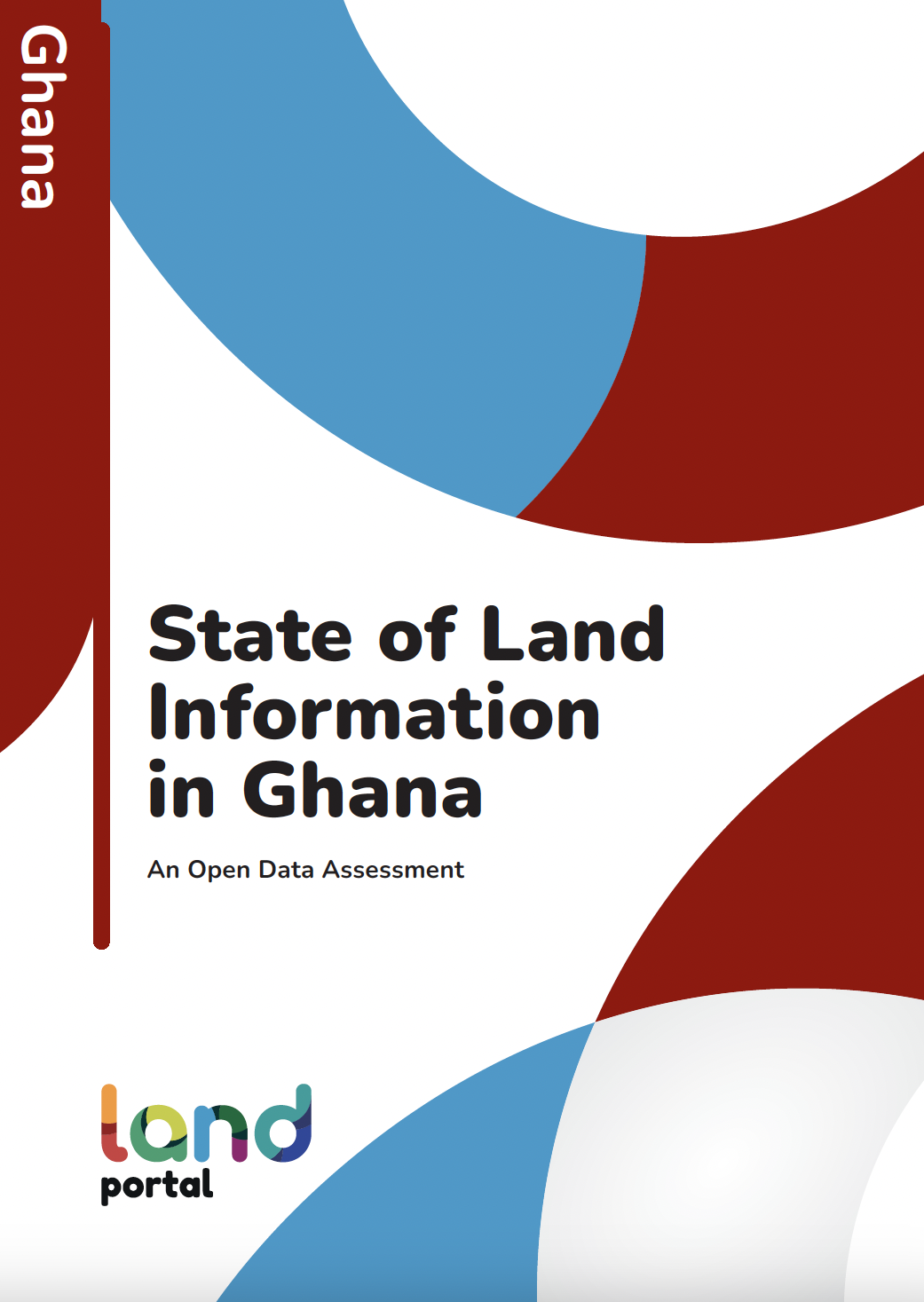
Land information is critical for equitable land governance that benefits the most vulnerable and drives economic growth, sustainable development, and food security. However, land data and information sources remain highly fragmented, unstructured and do not present the full range of perspectives needed for decision making. Land governance, (laws, processes, and institutions) regulate how decisions concerning land are made, implemented, and enforced and require the best possible land data and information. Given the prominent and evolving role of social and cultural land management paradigms in Ghana, as well as changing economic and environmental imperatives, efficient land management (and associated data and information) is critical for sustainable development.
Customary land ownership and dual traditional and modern governance systems are key to understanding much about Ghana. Almost all land is owned by local communities, who are represented by their traditional leadership structures, or ‘stools’. The Constitution is clear that “All stool lands in Ghana shall vest in the appropriate stool on behalf of, and in trust for the subjects of the stool in accordance with customary law and usage”. This means that land administration, and land information have to bridge customary systems exemplified by the Office of the Administrator of Stool Lands and the latest digital technologies being adopted by the Lands Commission and others. For 17 years a central objective of the Land Administration Project, supported by the World Bank and others, has been the digitization of land information, but there is little data in the public domain to show this. There are now, however, indications that land data management within different government organizations is improving, making it relatively easy to improve the availability of data.
This overview of the current status of online public access to government-held land information provides the basis for taking the necessary next steps to make this available to Ghana’s citizens. Public access to information should help improve the efficiency of land administration, transparency around decision-making, and accountability for actions and other land ownership and use decisions the authorities and others take.
The assessment covers four categories: land tenure, land use, land development and land value. It prefaces this with a short section on the legislative and policy framework and key institutions responsible for land administration. For each category, a ‘completeness score’ indicates the state of public availability of government information. The open data compliance section assesses the ‘openness’ of the data in each category. The report ends with a short analysis and recommendations to be considered for improving land data availability in Ghana and achieving the benefits of open data in the land sector.
Open data and government assessments conducted by others are, in summary as follows:
- The Open Data Inventory assesses coverage and openness of official statistics on the website of the Ghana Statistical Service (GSS) or other websites linked to it. It covers 25 categories of data. Ghana’s overall open data score for 2022 is 41/100, described as fulfilling some “coverage/openness criteria, but many important gaps remain”. Ghana is ranked eleventh out of fifteen countries assessed in West Africa. There is no land category but agriculture and land use (Ghana scores 45/100), and resource use (39/100) are summarized with others into an environment score (27/100).
- The Global Data Barometer – Land is one of eight modules in this data openness index. It comprises three indicators: data on land tenure, land use, and uses of land data to support work on gender and inclusion. In 2021 Ghana scored 0/100 for the openness of data on both land tenure and land use, but 46/100 for gender and inclusion uses of data, which is based mainly on non-state actors seeking to reduce the propensity for land disputes.
- LANDex, the global land governance index supported by the International Land Coalition and “based on common people-centered indicators”, has very little data for Ghana. Its coverage of five of a possible 33 indicators does not permit any meaningful overall score.
Auteurs et éditeurs
Project Lead: Charl-Thom Bayer, Land Portal Foundation, charl-thom.bayer@landportal.info
Researcher: David Young, Land Data Consultant, United Kingdom, foresttransparency@gmail.com
Edited by: Neil Sorensen, Land Portal Foundation, neil.sorensen@landportal.info
The vision of the Land Portal Foundation is to improve land governance to benefit those with the most insecure land rights and the greatest vulnerability to landlessness through information and knowledge sharing.

